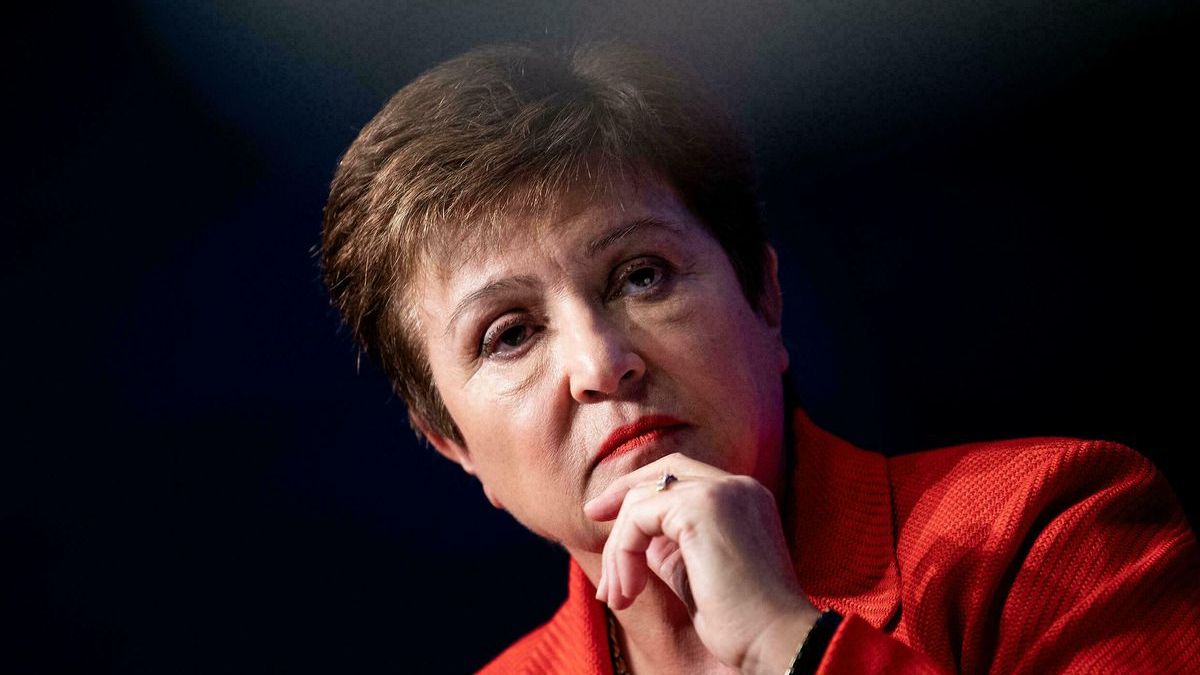The Fund’s claim is based on the fact that, as it is a long-term program – proposed by the country – and that demands structural reforms, a broad consensus is necessary.
Thus, the multinational body coincides with the idea of the government of Alberto Fernandez, as for what the new program must be approved by Congress, that is, where the different political forces are represented.
However, international analysts point out that the body is concerned about what are considered different approaches within the governing coalition on the changes that must be introduced in the Argentine economy -particularly the fiscal effort-, as well as the course of politics in the country.
Both internationally and locally, one of the questions that arise is what the vice president will do Cristina Fernandez before the eventual electoral defeat of the Frente de Todos in the midterm elections.
In the Casa Rosada some members of the government speculate that, given the certainty that an agreement with the IMF implies structural reforms and adjustments, given the imbalances that the economy must confront, Mrs. Kirchner could “distance herself” from the Government, blaming it for the adjustments that would come from the IMF and thus try to retain the hard core of his electorate.
In the background, Cristina thinks and feels that she is not responsible for the electoral failure and blames Alberto’s government for the management, as they point out in their environment.
They argue that he always let Alberto Fernández do and put as an example that “The main ministers were chosen by the president.”
Cristina’s interference began to take public prominence about a year ago – with the famous letter in which she denounced the “officials who do not work”, from which time she was warning – in public and in private – the errors of the Government.
However, in the environment of the president it is also stated that, in case of breaking, Kirchnerism would remain “without executive functions, a circumstance that would reduce its political strength “ and they would end up being a political party limited to the Province of Buenos Aires, concentrating on its followers in the poorest areas of the district.
Landing in the cabinet
Others think that Cristina, In the face of defeat, he will decide to “go for everything” in the Government occupying key areas in the cabinet and they speculate that the following changes could take place.
In the Ministry of Economy, although Cristina had said no “she did not want Guzmán’s resignation,” after arrival at the Secretary of Commerce, Roberto Feletti, a man with direct dialogue with the vice president, is one of those mentioned to occupy the position, as well as Augusto Costa, current Minister of Production of the province of Buenos Aires.
For the Ministry of Production (the minister Matias Kulfas is harshly criticized in the Instituto Patria) Debora Giorgi, who currently accompanies Feletti in Commerce. It would also go over other strategic divisions, such as the AFIP.
What is clear is that either path would lead to a situation of political instability.
It should also be noted that the bond between Alberto and Cristina “is damaged”, say those who know them well. “Alberto and Cristina talk daily, but at the end of the conversation they both end up more tense than before,” they synthesize in both environments.
The role of the president
His closer environment has been insisting to the president on the need for the “Take full control” of the government. In a good romance, let him distance himself from Cristina, according to what they say in the Casa Rosada.
They explain that they would have the support of numerous governors and mayors, social organizations (two of the largest) and mainly the CGT.
Some entrepreneurs for now remain on the sidelines, “they have a balcony and are more eager to leave the country than anything else ”, they confess with concern near the president.
They consider the role of the Chief of Staff to be key, Juan Manzur, (who plays one hundred percent for Alberto today and for his personal project tomorrow, as discussed in the Casa Rosada).
In fact, Manzur’s agenda is a sign that he is no longer the Interior Minister, Peter’s Wado (the most faithful representative of Cristina Kirchner in La Rosada) the most direct interlocutor with the governors and even mayors.
Manzur has already received almost all the provincial leaders, numerous mayors from across the country, all trade union organizations, businessmen and religious representatives, among other actors in society.
Also, today it exercises control of the official management that materializes in the cabinet meetings. “Now they are executive meetings,” they say close to the Chief of Staff.
Meanwhile, the chancellor Santiago Cafiero it continues to be an important actor in the construction of the “albertista” space.
In this context, negotiations with the IMF continue, although they are looking forward to what will happen as of November 15.
Source From: Ambito
David William is a talented author who has made a name for himself in the world of writing. He is a professional author who writes on a wide range of topics, from general interest to opinion news. David is currently working as a writer at 24 hours worlds where he brings his unique perspective and in-depth research to his articles, making them both informative and engaging.




